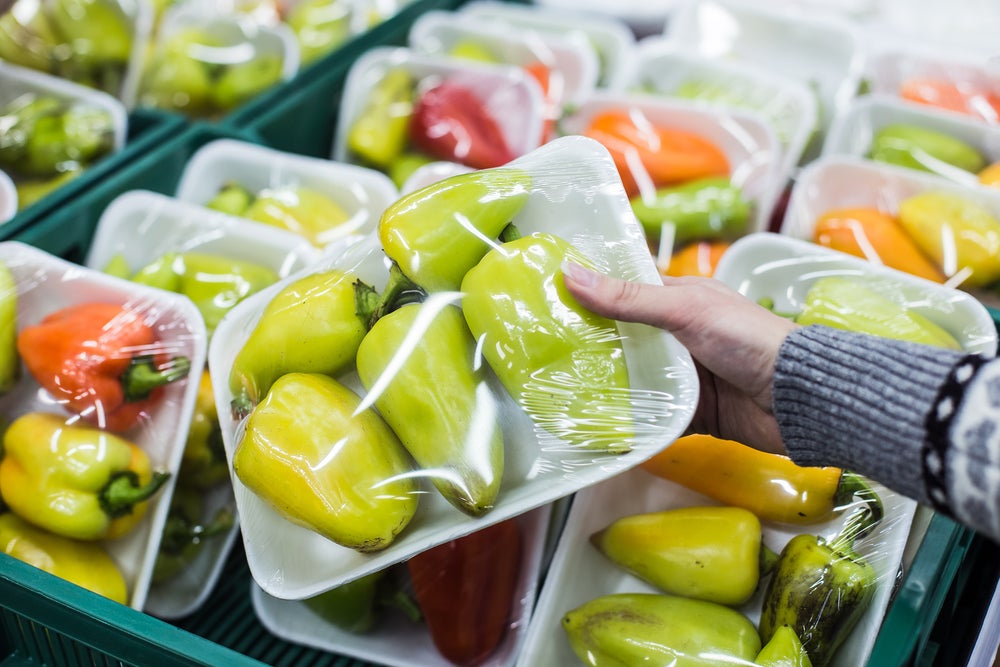
In a significant move towards combating plastic pollution, France has taken a crucial step by signing a decree to regulate the prohibition of plastic packaging for fresh, unprocessed fruits and vegetables.
The decree was signed by Barbara Pompili, Minister of Ecological Transition, Bruno Le Maire, Minister of Economy, Finance, and Recovery, and Julien Denormandie, Minister of Agriculture and Food.
This decision aligns with the “Anti-Waste for a Circular Economy” law (AGEC), passed in February 2020, and is set to take effect from 01 January 2022.
The ban will gradually phase out plastic packaging, with a complete ban for the most vulnerable produce.
Bidding farewell to over a billion plastic packages annually
According to estimates, a staggering 37% of fruits and vegetables are currently sold in plastic packaging. This new measure is expected to eliminate over a billion unnecessary plastic packages each year.
This move is part of France’s broader efforts to reduce plastic waste and its adverse impact on the environment.
By banning plastic packaging for fresh produce, the government aims to promote sustainable practices and encourage the adoption of eco-friendly alternatives.
A step-by-step approach: phasing out plastic packaging
The decree outlines a step-by-step approach to phase out plastic packaging for fresh fruits and vegetables. Starting from 01 January 2022, approximately 30 types of unprocessed fruits and vegetables will be sold without plastic packaging.
This will include popular vegetables such as leeks, zucchinis, eggplants, peppers, cucumbers, potatoes, carrots, round tomatoes, onions, turnips, cabbages, cauliflower, squashes, parsnips, radishes, and Jerusalem artichokes.
Among the fruits, plastic-free options will include apples, pears, oranges, clementines, kiwis, mandarins, lemons, grapefruits, plums, melons, pineapples, mangoes, passion fruits, and persimmons.
This transition will significantly reduce plastic waste and promote a more sustainable and eco-conscious shopping experience for consumers.
Finding alternatives: balancing preservation and environmental impact
The government aims to strike a balance between reducing plastic waste and preserving the quality of fruits and vegetables during their sale. The decree emphasises the need for a collaborative approach involving stakeholders, economic actors, and representatives from civil society.
This extensive consultation process ensures that practical solutions are identified and implemented. The decree, scheduled to be published on 12 October 2021, will establish a timeline for finding and deploying alternative packaging solutions.
By 30 June 2026, all fruits and vegetables must be sold without plastic packaging.
However, certain produce, such as ripe peaches, apricots, berries, sprouts, and early-harvested “primeur” vegetables, will have a grace period until 30 June 2026, to find suitable alternatives.
Moreover, a six-month tolerance period for depleting existing packaging stocks will be allowed.
Support for sustainable practices: collaboration with Ademe
Acknowledging the challenges faced by some producers and retailers in adapting to these changes, the French government is providing support to develop and implement eco-friendly packaging alternatives.
Actors in the industry can seek assistance from the French Environment and Energy Management Agency (Ademe) to explore and adopt sustainable solutions for packaging fresh fruits and vegetables.
This support is crucial in ensuring a smooth and effective transition away from plastic packaging while safeguarding the quality and freshness of the produce.



